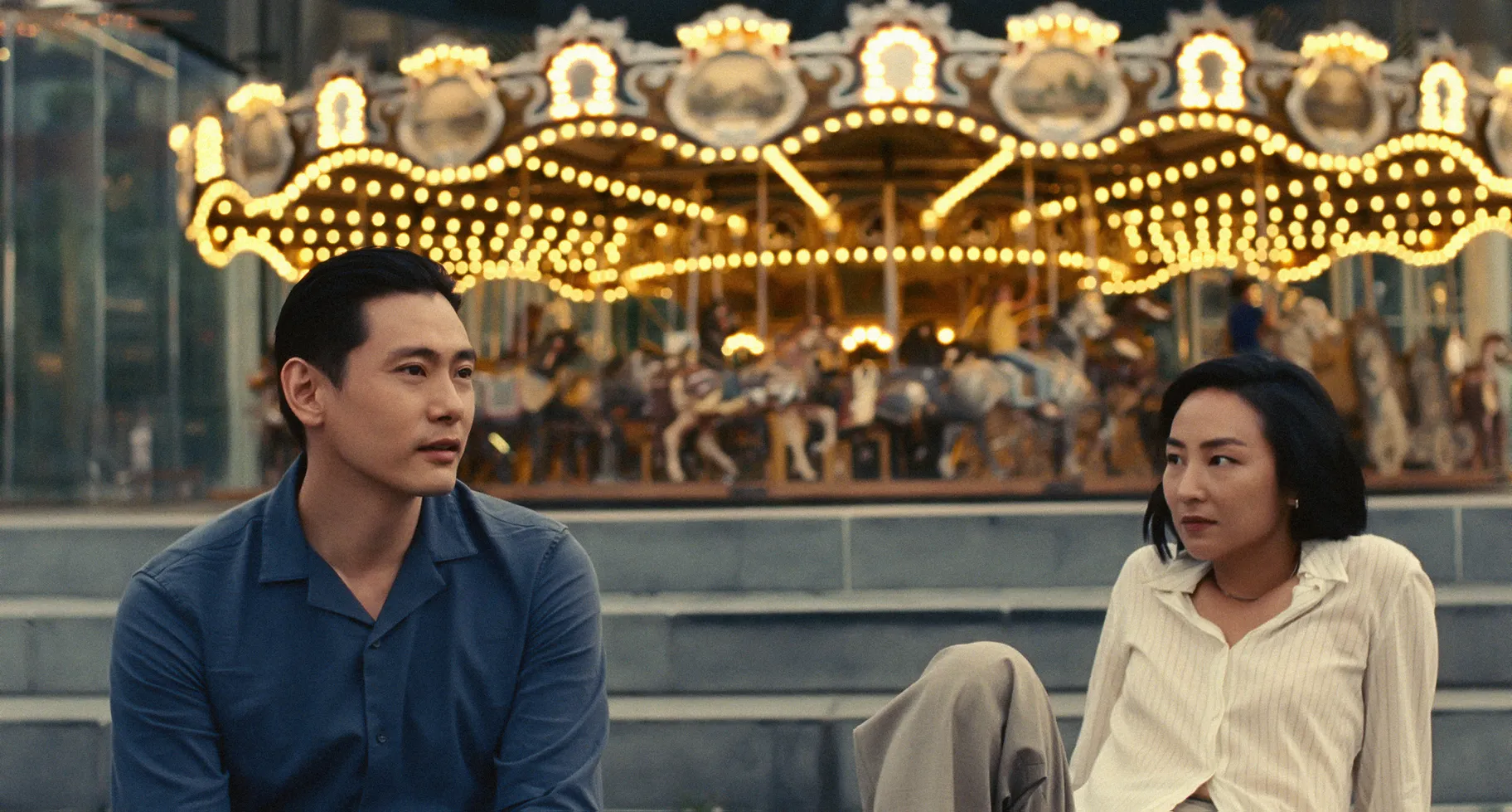Past Lives, a debut feature by the talented Celine Song, is a cinematic odyssey that delves deep into the complexities of the human spirit, stirring emotions in a profound and lasting manner. I had a pleasure to see this visual delight at the 14th American Film Festival in Wroclaw, leaving an indelible mark on its audience. This film, a creation of Korean-Canadian director and writer Celine Song, is a visually captivating narrative woven with themes of yearning and an intense longing for connection.
Beyond the Screen: The Liminality of Celine Song’s Narrative

Set against the backdrop of a mesmerizing cinematic landscape, Past Lives conjures a liminal space, akin to a portal leading to a parallel dimension or an alternate reality. This realm is not just a figment of imagination but a tangible experience, a reflection of the migrant’s journey that transforms from a path into a home.
As someone who has traversed the geographic and emotional distance from Poland to Scotland and back, I found a deep, personal resonance with the film’s portrayal of this in-betweenness—a state of being perpetually rooted in transience.
Artistic Echoes: Comparisons with Cinematic Greats
Critically acclaimed, Song’s work has been likened to the poignant storytelling of Wong Kar-Wai in In the Mood for Love (2023) and the intimate narrative style of Richard Linklater’s Before (1995, 2004, 2013) trilogy. It also mirrors Sofia Coppola’s exploration of identity in Lost in Translation (2003) and the intricate, metaphysical layers of Eternal Sunshine of the Spotless Mind (2004). Yet, Past Lives distinguishes itself with its nuanced subtlety and unique touch.
The Opening Scene: A Window into Complex Relationships

The film opens with an enigmatic scene in a bar, where the dynamics between three individuals—a couple of Asian descent and a detached white man—set the stage for a narrative that explores relationships, race, and the interplay of these elements. The voice-overs, both male and female, artfully amplify our curiosity about the nature of these interactions.
Rekindling Across Continents: The Story of Nora, Hae Sung, and Arthur
As the story unfolds, the plot intricately weaves the lives of the characters introduced in the opening scene: South Korean Hae Sung (Teo Yoo), Korean-Canadian migrant Nora (Greta Lee), and Jewish American Arthur (John Magaro). Childhood sweethearts, Hae Sung and Nora, reconnect after a 12-year hiatus through Facebook and Skype, sparking an enduring affection that had survived the tests of time and distance. Their digital conversations are a dance of laughter, lightness, and unspoken longing. However, Nora ultimately decides to prioritize her life in New York, leading to the end of their relationship.

Beyond a Love Story: Exploring the Essence of In-Yun
Twelve years later, their paths cross again in New York, but now Nora is married to Arthur. Past Lives transcends the clichés of a typical love triangle by delving into the intricate nature of human connections through the lens of the Korean Buddhist concept of in-yun — a belief in the predestined nature of relationships formed through encounters in past lives. Song’s narrative is far from a romanticized interpretation; it explores the fluidity and evolving nature of in-yeon, capturing the beauty and complexity of human connections.

Visual Poetry: The Cinematographic Brilliance of Shabier Kirchner
Cinematographer Shabier Kirchner’s use of a 35mm camera is masterful, framing Nora and Hae Sung against blurred backgrounds, creating an ethereal distance that accentuates the film’s central theme: the migrant experience and the perpetual state of in-betweenness it engenders. Nora’s interactions with Hae Sung highlight her fluctuating sense of identity, a poignant representation of the migrant’s ongoing quest for national belonging.

The Migrant’s Journey of the Soul: Identity and Belonging in Past Lives
Ultimately, Past Lives is a poetic exploration of universal yearnings. It challenges the notion of a fixed identity, embracing change as the only constant in life. The film is a poignant portrayal of lost opportunities, missed chances, and the boundless possibilities.

